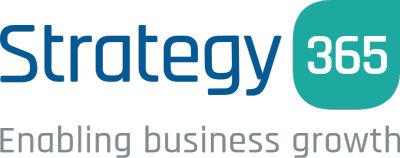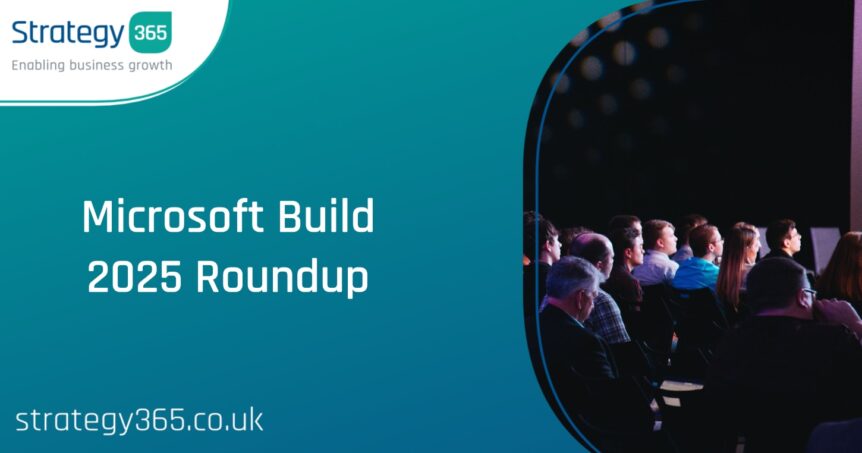As Build 2025 draws to a close, we’ve taken a look at the more significant announcements for organisations working with Microsoft technologies.
What is Microsoft Build?
Microsoft Build is an annual event, first held in 2011, presented by peers and experts worldwide, aimed at the developer community working with Microsoft technologies, including the Power Platform, Azure and Windows. It is often used to announce upcoming products and new features for existing products.
As with all of Microsoft’s recent events, there was a heavy focus on Copilot and AI, but rather than detail all of the announcements, we have summarised the changes that could have the most impact on your business.
1. AI Agents and Copilot Tuning
Microsoft introduced Microsoft 365 Copilot Tuning, allowing organisations to train Copilot models using internal data while maintaining strict permission boundaries. These tuned models can be deployed via Agent Builder to create domain-specific AI agents. Copilot Tuning will be rolling out in June as part of the Copilot Tuning Program, for customers with 5,000 or more Microsoft 365 Copilot licenses.
2. Copilot Enhancements for developers and agent builders
Microsoft is making it easier for developers to create powerful, secure AI agents using Copilot Studio and Microsoft 365 Copilot. New tools like the Visual Studio toolkit and Agent SDK help build and manage these agents across apps and messaging platforms. Developers can now use APIs to connect to Microsoft 365 data, explore a new Agent Store to find ready-made agents, and even bring in custom AI models from Azure. All of this helps businesses automate tasks, gain insights, and improve productivity with tailored AI experience.
Microsoft is supercharging Copilot Studio with tools that let low-code creators build smarter, more collaborative AI agents. Now, different types of agents – built with Copilot Studio, Azure AI Foundry, or the Microsoft 365 SDK – can work together as a team and share tasks. New tech like the Model Context Protocol helps these agents access the right data securely, while powerful add-ons like the computer use tool let agents perform actions across apps using vision and automation.
With upgrades like Python-powered code execution, smarter connectors, and deep Dataverse search, these agents can reason, calculate, and act with much more intelligence.
3. Microsoft 365 Copilot improvements
Microsoft is rolling out a batch of new features for Microsoft 365 Copilot to make everyday work even smarter. There’s a refreshed Copilot app built to collaborate with you more naturally, plus a new “Create” tool that brings in cutting-edge AI image generation from OpenAI. Copilot Notebooks – now generally available – help you turn messy data or ideas into insights instantly. And coming soon are Copilot Search and Copilot Memory, which promise to help you find and remember what matters across your work. Two powerful new AI agents – Researcher and Analyst – are also launching, designed to think critically and help you make better decisions faster.
4. Microsoft Power Pages updates
Microsoft Power Pages is getting a major upgrade to help developers and makers build smarter, multilingual business portals more efficiently. You can now bring your own code using modern AI-assisted tools, preview and manage portals directly in Visual Studio Code, and create websites in custom languages beyond the current 45.
Makers can also embed multiple AI agents – like those from Copilot Studio – directly into their sites, enabling dynamic interactions such as updating records or answering questions. New tools like intelligent list search, expanded client APIs, and support for business rules and Dataverse interactions round out the updates, all aimed at making portal development faster, more flexible, and more collaborative.
5. Dynamics 365 Becomes AI-Ready with MCP Integration
Microsoft Dynamics 365 is entering a new era of AI collaboration through the introduction of Model Context Protocol (MCP) servers, now in preview. This upgrade will allow both Microsoft-built and custom AI agents to access Dynamics 365 data and processes, enabling seamless automation and context-rich decision-making. MCP compliance across Dynamics apps means businesses can build intelligent workflows that span departments, reduce integration complexity, and orchestrate end-to-end actions with greater speed and flexibility. Copilot Studio will serve as a key hub for these agents, making it easier than ever to connect, scale, and evolve enterprise automation strategies.
Summary
It is always exciting to see the new developments that are announced at the various Microsoft events, and Build is no exception. We look forward to seeing how these heavily Copilot-focused updates improve upon Dynamics 365 and the Power Platform’s already wide-ranging set of functionality.



